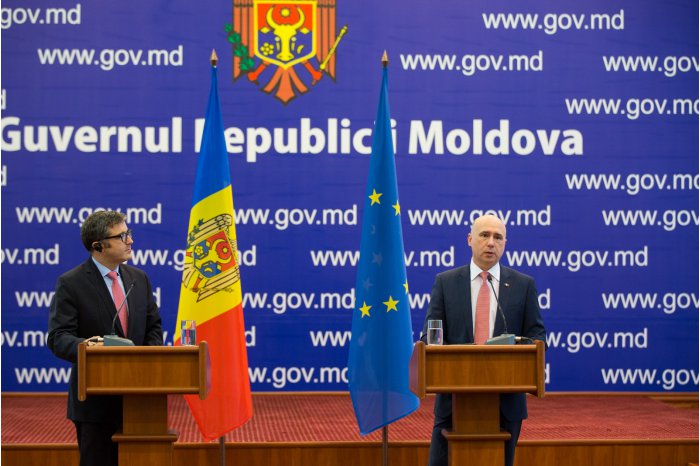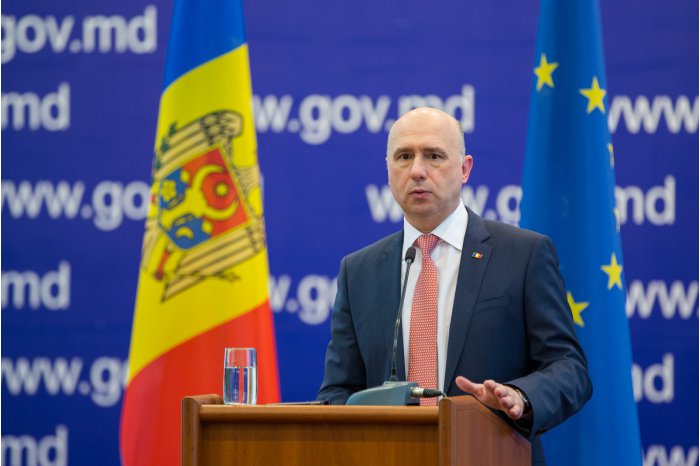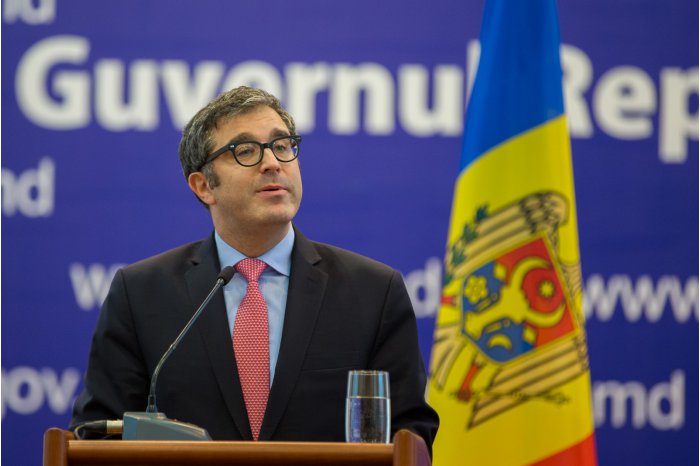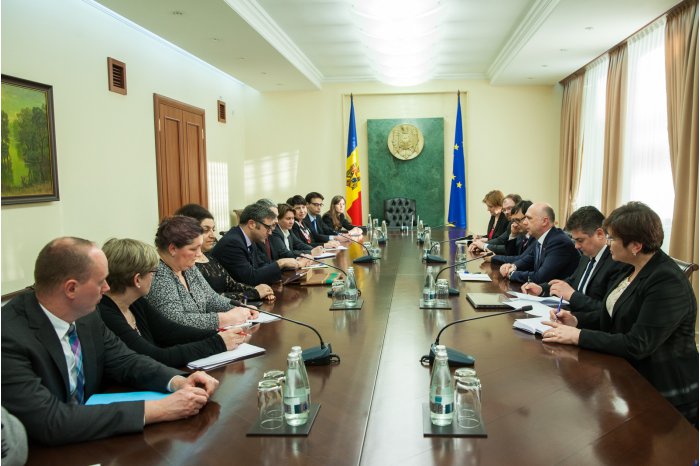IMF experts appreciate progress made by Moldovan authorities
21:00 | 28.02.2017 Category: Official
Chisinau, 28 February /MOLDPRES/ - Prime Minister Pavel Filip and the head of the mission of the International Monetary Fund (IMF), Ben Kelmanson, at a today’s joint news briefing, unveiled the conclusions of the first mission of evaluating the implementation of Moldova’s Agreement with IMF, the government’s communication and protocol department has reported.
The PM reiterated the importance of the Agreement with IMF for Moldova, including in order to promote needed reforms, consolidate the national economy and improve the citizens’ living. “We are grateful that, beyond any money, the International Monetary Fund gave us a credit of confidence, which allowed us unlocking the foreign financing and return to good relations with our development partners. Besides the 180 million dollars, provided within the Agreement with IMF, the accord is important for us, as it is thought in the sense of our macroeconomic disciplining.” Pavel Filip said.
For his part, the head of the IMF mission thanked the authorities for the openness and cooperation they had proved in the two weeks during which the evaluation mission lasted. “The experts of the International Monetary Fund and Moldova’s authorities reached an agreement on the first evaluation of the programme of economic reforms backed by the three-year agreement, financed based on the Extended Credit Facility and Extended Fund Facility. The IMF Board of Directors will analyze the mission’s report in next April, after Moldova’s authorities implement a string of preliminary actions. After the programme’s evaluation is completed, Moldova will be able to access 15.7 million of special drawing rights, i.e. 21.2 million dollars,” Ben Kelmanson said.
At the same time, the IMF representative noted that the Moldovan authorities had made progress in removing persistent vulnerabilities in the financial and banking sector and in implementing structural reforms. “The efforts made contributed to the re-establishment of the financial stability. The firmly continuation of the efforts to rehabilitate the financial and banking sector, including the improvement of the governance and the financial situation of the commercial banks, as well as strengthening the framework of regulation and supervision are vital for backing the economic growth and creating new jobs,” the head of the IMF mission also said.
At the same time, the PM specified that the present visit was, in general, positive for Moldova. “In continuation, the same solid effort is to be made in order to fulfill the commitments and meet the terms agreed upon with the Fund’s team. We are determined to enforce the measures agreed upon, as they, even if make us leave the area of comfort, are eventually for our benefit,” Pavel Filip said.
Among the progress recorded by the team of experts of the International Monetary Fund, there are the ones in the energy, banking and budgetary sectors. At the same time, the macroeconomic forecasts and indexes agreed upon with IMF have been improved. Thus, the increase of the Gross Domestic Product (GDP) for 2017 was estimated at 4.5 per cent, against 3 per cent, as it was set based on the budget for this year. At the same time, in late 2016, the government managed to reach the lowest inflation level of the last years – 2.4 per cent, down from 13.5 per cent in 2015. Also, experts estimated the increase in exports at the level of 10 per cent and of the imports at the one 8 per cent, as well as the rise in the average monthly salary on the national economy by 10.1 per cent more against the last year.
At the same time, Pavel Filip said that the sided had agreed upon the approval of a document of economic development, which is to be worked out till next mid-March and will be at the basis of updating the Moldova 2020 National Development Strategy, as well as on undertaken needed measures to reduce poverty and ensure the economic growth of Moldova. “In the budgetary sector, we commit to maintain and develop the social protection system and allocate budget resources to back socially vulnerable families. We will continue to enforce reforms due to improve the independence, efficiency and responsibility of the judicial system and anticorruption institutions. These actions are necessary to edify the citizens’ trust in the government, in order to encourage foreign investments and support the sustainable economic growth of the country,” Pavel Filip added.




